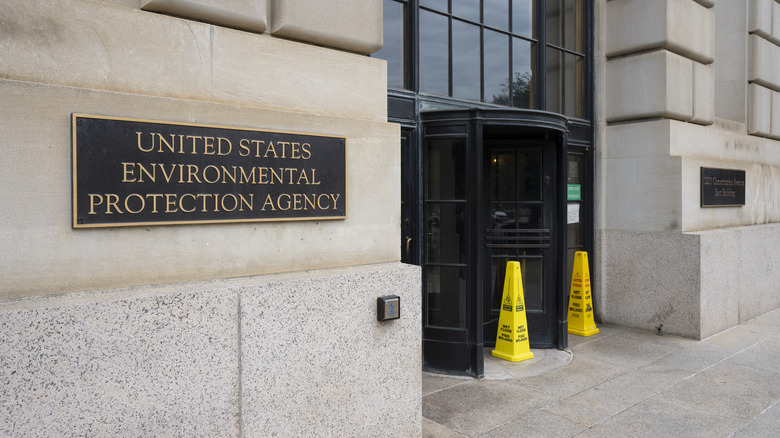
Depending on your view of the U.S. Environmental Protection Agency (EPA), this fact can either be fun or "fun," with the hardest air quotes your fingers can muster. EPA regulation of the aviation industry is a relatively recent phenomenon. Go back to 2012, and articles from environment-focused sites like Oceana complained about how the "EPA Refuses to Control Pollution from Ships, Aircraft, and Non-road Engines." Fast forward to 2016, and the EPA essentially acted surprised that a lot of greenhouse gases came from airplanes.
In 2020, the EPA released its very first airplane emissions rules, which, with conservative rounding, pleased zero environmental groups. The main complaint was that by merely aligning the U.S.'s emission rules with the International Civil Aviation Organization's (ICAO) standards on CO2 emissions (effective by 2028), the agency wasn't doing anything more than virtue-signaling.
In 2023, the EPA rolled up its sleeves, reloaded its arm guns like Henry Cavill in "Mission: Impossible" and started focusing on emissions with a steely determination. The first thing the organization did was study the effect of tetraethyl lead (TEL) still being used in aviation fuel? Why yes, we do live in a world where Cummins paid $2 billion in fines over EPA emissions violations, yet airplanes still use leaded gas. Why do you ask?
 Gsheldon/Getty Images
Gsheldon/Getty Images
Society has known that lead is toxic for a long time. Lead miners in the Middle Ages got so ill that people suspected the miners might be possessed, and studies show that leaded gasoline has dropped the IQ of 170 million Americans. According to the EPA's findings in 2023, 5.2 million Americans lived within a ¼-mile of an airport runway and had higher concentrations of lead in their blood than those who lived farther away.
At the time, about 170,000 prop planes still operated on the kind of gas that cars haven't used since — check those notes — 1996. Yeah, lead and lead additives were in gasoline when Metallica was cutting their hair and touring in support of "Load". For decades, lead in gas helped eliminate knock, or unintended combustion that can harm engines. TEL was so effective that GM's Thomas Midgley Jr., the engineer who discovered TEL's engine-preserving properties, pretty much ignored all the nasty side effects so cars could run with higher compression.
Unsurprisingly, Midgley suffered from lead poisoning for the remaining years of his life because he would pour leaded gas on his hands and inhale the fumes to prove how safe it was at news conferences. Come on, he had to have invented something else, something good for the planet. Oh, looks like he also created Freon.
 Hapabapa/Getty Images
Hapabapa/Getty Images
In the EPA's October 2023 update titled, "EPA Determines that Lead Emissions from Aircraft Engines Cause or Contribute to Air Pollution," there's a line that reads, "Lead emissions from aircraft are an important and urgent public health issue." Yes, it's an "urgent issue." Well, it is the government, so paces will be varying degrees of glacial, as evidenced by the fact that leaded gas is still in use by airplanes.
The EPA is working with the Federal Aviation Administration (FAA) to launch the Eliminate Aviation Gasoline Lead Emissions (EAGLE) program, which aims to completely get rid of leaded gas in airplanes by 2030. They just have to find one unleaded fuel that the General Aviation fleet can use, make sure the fuel doesn't cause any safety issues with high-performance engines, set up the infrastructure and craft policies for producing the fuel in great enough quantities, offer sufficient amounts of 100-octane "low lead" fuel during transition periods, and endorse plans for reducing leaded-gas reliance. It's so simple.
By now, you probably find it quite "fun" that the EPA controls airplane emissions. Let's check out the EPA's "Accomplishments and Successes of Reducing Air Pollution from Transportation in the United States" to see how much airplane emissions have gone down and CTRL-F the words "airplane," "airline," and "airport." Oh, there aren't any results. At least the EPA has taken the bold stand that "Chemtrails aren't real."
















